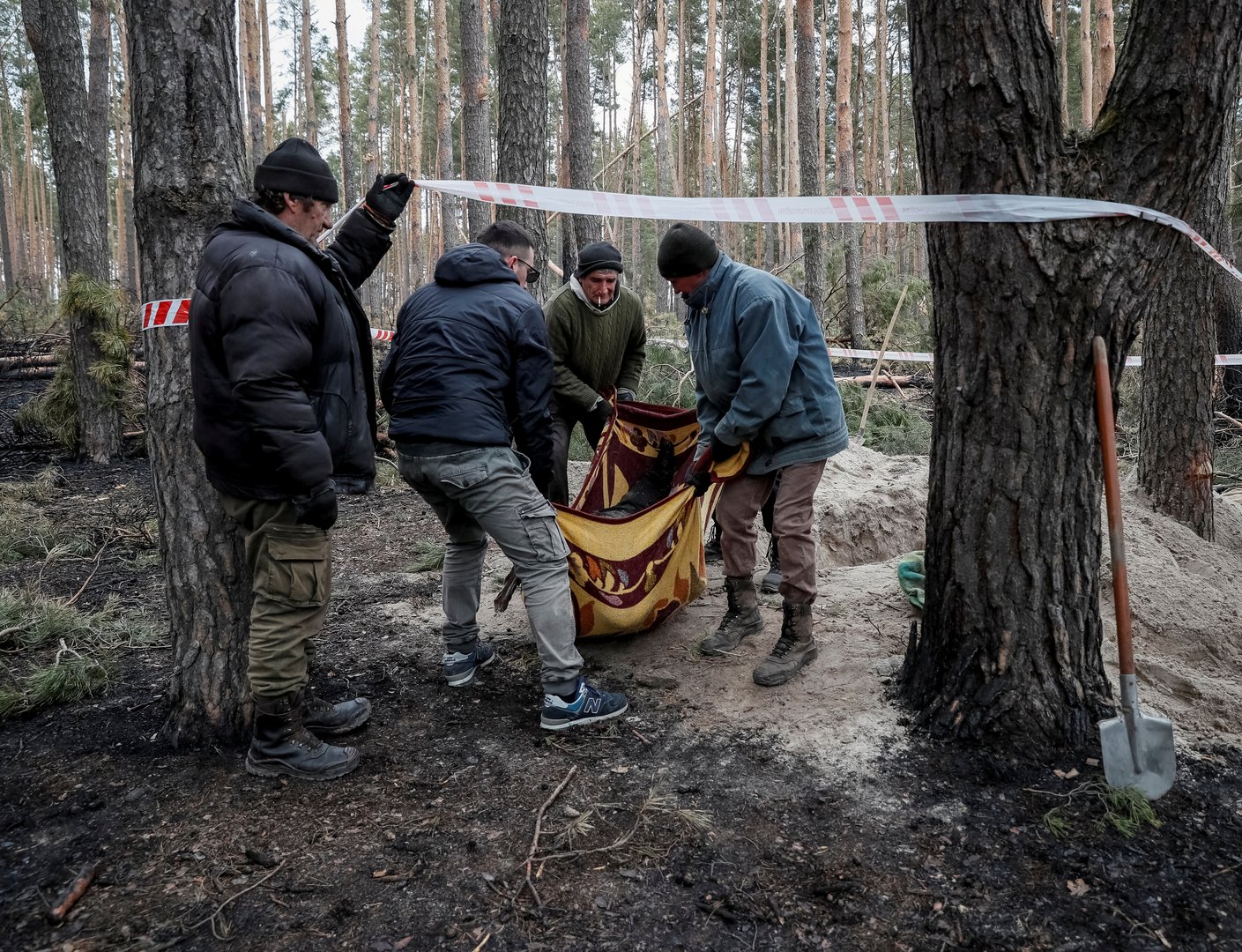The discovery of corpses with their hands bound and a mass grave in the town of Bucha, pictures of which, as well as testimony from survivors, were reproduced in the world’s media, sparked another outcry against Russia and its troops. European leaders spoke of “atrocities” and “massacres”, while foreign policy chief Josep Borrell said the EU was working on new sanctions against Russia.
It was not just the West, which Moscow routinely dismisses as biased, that condemned the killing of civilians. The UN Human Rights Commissioner said that heavy shelling of Ukrainian cities had killed civilians, adding that these could constitute war crimes. The Ukrainian authorities said the bodies of 410 civilians were found in towns close to Kyiv that were retaken from Russian troops.
Russia stuck to the tactic of denying having had anything to do with these atrocities. “We categorically reject all allegations,” said President Putin’s spokesman Dmitry Peskov, who asked foreign governments not rush into accusations against Russia, as the images of corpses “do not correspond to reality”. He claimed that Russian defence ministry experts had “identified signs of video fakes”.
Meanwhile, Russia’s Deputy Permanent Representative at the UN had asked for a meeting of the Security Council to discuss “the flagrant provocation of Ukrainian radicals” in Bucha. “We will unmask Ukrainian provocateurs and their Western patrons,” he was quoted as saying by Tass news agency. Moscow claimed the Ukrainian radicals had killed the civilians of Bucha, just as it had claimed Ukrainian nationalists had bombed the children and maternity hospital in Mariupol.
Killing civilians, like the destruction of towns through indiscriminate and relentless shelling, is aimed at bringing the Ukrainian people to their knees. Neither is it the first time Russia has employed such tactics. In 2003, the UN called Grozny in Chechnya the most destroyed city on earth – between five and eight thousand civilian were killed during its siege by Russian forces. Mariupol, Kharkiv, Chernihiv have been subjected to similar blanket bombing, the mayor of Chrenihiv, saying 70 per cent of the city had been destroyed.
President Zelenskiy said on Monday negotiations between the two sides would continue, but it is difficult to see any progress being achieved in these conditions. Is Moscow even serious about reaching some kind of peace deal or is it using the talks for military regrouping and a new assault a bit later? Can the trust needed to achieve any agreement exist between the two sides at present or will things have to get worse before real negotiations begin?
In the EU, Poland’s Prime Minister Mateusz Morawiecki called for tougher sanctions and an end to “negotiations with criminals”. There has even been talk about the ultimate sanction, which will also harm Europe, the ending of Russian gas imports. This continuous raising of the ante is worrying, but it seems like the only way to apply pressure on Russia, which does not seem remotely interested in reaching any agreement with Ukraine at present.







Click here to change your cookie preferences